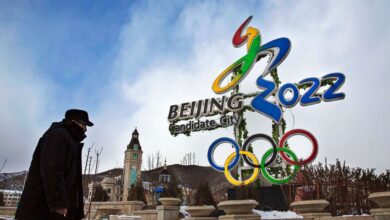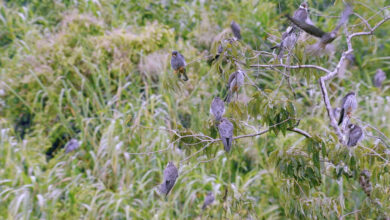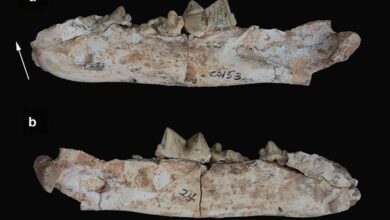By Dr. Sybil C. Mitchell, The New Tri-State Defender
It was quite an extraordinary encounter: a Christian, a Muslim and a Spiritualist on a panel at the Hattiloo Theatre talking about their belief systems during a discussion framed against a backdrop of 400 years of Africans living in America.
One truth outweighed every likely point of contention: each of these systems of belief has sustained African Americans. And in this year of marking the quadricentennial of Africans being brought to America by slave trade, the harmonious meeting of the minds celebrated what is possible when a race of people is unified.
“We have curated an eight-month long commemoration of the 400 years Black people have been in America called ‘Lest We Forget,’ using theatre, film, music and discussion to speak to the triumphs and tragedies of what it means to be Black in this country,” said Ekundayo Bandele, founder and executive director of Hattiloo Theatre. “I was not surprised at the spirit of accord struck with these spiritual giants. So much is possible when we come together in commonality and oneness.”
Hattiloo’s event for June was a panel discussion, “Our Faith, Our Story,” featuring Dr. J. Lawrence Turner, pastor of Mississippi Boulevard Christian Church; Sadio, also known as Sadio Butterfly, a self-styled spiritualist; and Minister Anthony Mohammad with the Nation of Islam.
All three agreed that self-love must be a conscientious mindset, whatever faith someone claims. Self-hate and infighting were common themes for all three panelists.
“When we were taken from Africa, we were not slaves,” said Mohammad. “We were brought straight to America. They made a stop in the Caribbean where we were broken. Our spirit was broken. This was not a physical breaking, but a mental breaking. We were taught to hate ourselves and each other. They took away the light and left only darkness. How can you love anyone if you hate yourself? We are still broken in our minds.”
Turner agreed that Christianity has had its dark side.
“White Christians selected the scriptures they wanted us to know,” he said. “One of the most well-known was ‘Slaves, obey your masters.’ We learned the ones they wanted us to read, but we started to read those other scriptures, too. White Christians helped organize the Black church. In 1787, Black worshippers were told to get off of the altar praying. They allowed the cultural norm of separation and oppression to creep into the church. This was the beginning of the ‘Black church.’
“But God in Christ has suffered with us. The Black church historically has been the center of our community,” Turner said. “And those who say the Black church is too emotional is missing the richness of our faith. Africans were the first to do the remix. They remixed the European hymns with rich, diverse creativity. God’s son, Jesus, died and rose from the dead. And because He lives, I can face tomorrow. That’s my story and I’m sticking to it.”
Sadio, the only female panelist, declared her faith to be steeped in self-empowerment and self-love.
“Our feminine energy tempers masculine energy,” she said. “I recognize the Black woman as ‘God.’ We have always been a part of the resistance. The slave cook would season the food with herbs, herbs brought over from Africa. The white family would get sick and die. No one knew why. The green herb looks like parsley.
“I am African living in America. I pray to the ancestors, use voodoo and juju, pray with crystals, all of that. Sisters, take back your power. Some call it sexual or sensual power. The ancestors told me who I am and the power I have within me. I celebrate my femininity and the power it gives me.”
Sadio said voodoo and juju were given negative connotations because history was rewritten by Europeans.
“I worship the Orisha. I perform her ceremonies and rituals. I pour out libations. I honor the ancestors and the Most High,” she said.
During panel discussions, Mohammad reflected on his faith as it relates to African Americans.
“In the Nation of Islam, we are taught to love ourselves and to love our women. We don’t beg other people to do for us what we can do for ourselves. We don’t beg other folk to protect us or protect our women. We can do that ourselves,” he said.
“When we unify, we can work with people we wouldn’t normally get along with. Our commonality is that we all want the best for our people. Black love does not mean white hate. I unapologetically love Black people. I want the best for my people — unapologetically.”
While many in the mainstream world may not know the significance of 1619, Hattiloo Theatre’s “Lest We Forget” is making a concerted effort to acknowledge the year the first African Americans were brought to the New World colonies as indentured servants.
To learn more about upcoming events in the series, visit www.hattiloo.org.






